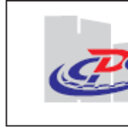Deficiency of dietary niacin impaired gill immunity and antioxidant capacity, and changes its tight junction proteins via regulating NF-κB, TOR, Nrf2 and MLCK signaling pathways in young grass carp (Ctenopharyngodon idella).
Słowa kluczowe
Abstrakcyjny
To investigate the effects of dietary niacin on gill immunity, tight junction proteins, antioxidant system and related signaling molecules mRNA expression, young grass carp (Ctenopharyngodon idella) were fed six diets containing graded levels of niacin (3.95-55.01 mg/kg diet) for 8 weeks. The study indicated that niacin deficiency decreased lysozyme and acid phosphatase activities, and complement 3 content, and caused oxidative damage that might be partly due to the decreased copper, zinc superoxide dismutase, catalase, glutathione reductase, glutathione peroxidase and glutathione-S-transferase activities and reduced glutathione content in fish gills (P < 0.05). Moreover, the relative mRNA levels of antimicrobial peptides (liver expressed antimicrobial peptide 2 and Hepcidin), anti-inflammatory cytokines (interleukin 10 and transforming growth factor β1), tight junction proteins (Occludin, zonula occludens 1, Claudin-15 and -3), signaling molecules (inhibitor of κBα (IκBα), target of rapamycin (TOR), ribosomal protein S6 kinase 1 (S6K1) and NF-E2-related factor 2 (Nrf2)) and antioxidant enzymes were significantly decreased (P < 0.05) in niacin-deficient diet group. Conversely, the mRNA levels of pro-inflammatory cytokines (tumor necrosis factor α, interleukin 8, interferon γ2, and interleukin 1β), signaling molecules (nuclear factor kappa B p65, IκB kinase α, IκB kinase β, IκB kinase γ, Kelch-like-ECH-associated protein 1b, myosin light chain kinase and p38 mitogen-activated protein kinase (p38 MAPK) were significantly increased (P < 0.05) in fish gills fed niacin-deficient diet. Interestingly, the varying niacin levels of 3.95-55.01 mg/kg diet had no effect on the mRNA level of Kelch-like-ECH-associated protein 1a, Claudin-c and -12 in fish gills (P > 0.05). In conclusion, niacin deficiency decreased gill immunity, impaired gill antioxidant system, as well as regulated mRNA expression of gill tight junction proteins and related signaling molecules of fish.




